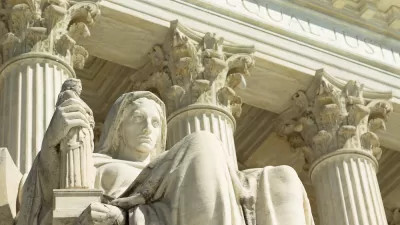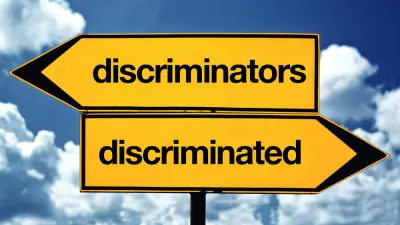Despite their fears, the well-off residents of Mount Laurel have been unaffected by the “fair share” of affordable housing mandated by the U.S. Supreme Court in the landmark battle over the socioeconomic integration of suburbia.
"SUBURBIA beckons many poor and working-class families with the promise of better schools, access to non-dead-end jobs and sanctuary from the looming threat of urban violence," writes David L. Kirp, professor at the University of California, Berkeley. "But many suburbanites balk at the prospect of affordable housing in their midst."
"Are the fears supported by facts? A comprehensive new analysis of what has transpired in Mount Laurel, N.J., since 140 units of affordable housing were built in that verdant suburb in 2000, answers with a resounding 'no.'"
Kirp discusses the findings of “Climbing Mount Laurel," a new book co-written by Princeton sociologist Douglas S. Massey and several colleagues, which "concludes that this affordable housing has had zero impact on the affluent residents of that community — crime rates, property values and taxes have moved in step with nearby suburbs — while the lives of the poor and working-class families who moved there have been transformed."
FULL STORY: Here Comes the Neighborhood

Americans May Be Stuck — But Why?
Americans are moving a lot less than they once did, and that is a problem. While Yoni Applebaum, in his highly-publicized article Stuck, gets the reasons badly wrong, it's still important to ask: why are we moving so much less than before?

Study: Maui’s Plan to Convert Vacation Rentals to Long-Term Housing Could Cause Nearly $1 Billion Economic Loss
The plan would reduce visitor accommodation by 25,% resulting in 1,900 jobs lost.

Placekeeping: Setting a New Precedent for City Planners
How a preservation-based approach to redevelopment and urban design can prevent displacement and honor legacy communities.

San Diego Swaps Parking Lane for Kid-Friendly Mini Park
The block-long greenway will feature interactive play equipment and landscaping.

Tracking the Invisible: Methane Leaks From LA’s Neighborhood Oil Sites
Environmental advocates are using infrared technology to monitor and document methane leaks from neighborhood oil sites, filling regulatory gaps and pushing for stronger protections to safeguard community health and the climate.

Montana Bill Promotes Parking Reform
A bill before the Montana state senate would bar cities from requiring more than one parking spot per new housing unit.
Urban Design for Planners 1: Software Tools
This six-course series explores essential urban design concepts using open source software and equips planners with the tools they need to participate fully in the urban design process.
Planning for Universal Design
Learn the tools for implementing Universal Design in planning regulations.
Caltrans
Heyer Gruel & Associates PA
Institute for Housing and Urban Development Studies (IHS)
City of Grandview
Harvard GSD Executive Education
Salt Lake City
NYU Wagner Graduate School of Public Service
City of Cambridge, Maryland




























